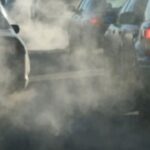By Naveed ul Haq
LAHORE, Jul 23 (APP): Unbridled population growth and urban development are continuously stressing our resources with the provision of basic amenities in mega cities becoming an uphill task for the city managers.
Whether it is Karachi, Lahore, Faisalabad or even Islamabad, the provision of basic facilities like water, sewerage, solid waste management, clean air, smooth mobility, and quality living always remains a challenge for them.
Taking the example of Lahore – a city hosting 13 million people with a 900-kilometer-long road network has presented the sorry state of affairs in draining rainwater, cleanliness and transportation during the current monsoon season.
One major reason for unmanaged urbanization is the lack of government policies to manage the growing population and control the sprawl of illegal housing societies on the boundaries of major cities.
These residential societies, no doubt, meet the housing needs of people, but in the long run, they turn to be messy.
Over the past couple of decades, Pakistan has experienced the highest urbanization rate in South Asia and according to United Nations Population Division, nearly 50 per cent of Pakistan’s population will be living in cities by 2025.
Therefore, civic departments like Water and Sanitation Authority, Solid Waste Management Company, Punjab Local Government and Community Development, Lahore Development Authority, Environment Protection Department and some others are often seen overburdened in dispensation of their duties.
“We are doing the utmost to facilitate residents. But, the unprecedented population influx to urban areas hampers our efforts. Therefore, we need resources in parity with urban expansion,” said Babar Sahib Din, Chief Executive Officer (CEO) of Lahore Waste Management Company (LWMC).
“Our staff is always on toes for providing cleanliness services as the LWMC is also endeavoring to apply the 3Rs (Reduce, Reuse and Recycle) strategy in the provincial capital,” he said.
“Zero waste initiative has been completed successfully. But, we still confront a challenge of changing behavior and making our people responsible citizens,” Sahib Din stated. “The residents should create less waste, use re-usable shopping bags, keep their surroundings clean, install trash cans at suitable places and educate their children to keep their homes, localities and schools clean.”
Despite these claims, five cities in Punjab including Lahore were listed among the 50 most polluted cities in the world. Particulate matter pollution in the city is often counted many times higher than the WHO-prescribed air quality standards.
“Exposure to polluted air and stinking sewage stagnant on roads and streets after rains causes health complications like asthma, lung damage, bronchial infections, strokes, heart problems and shortened life expectancy,” said a health expert Dr Tahir Mahmood.
“Although the concerned departments claim to be keeping busy in cleaning the city yet the situation on the ground speaks otherwise,” he stated.
In January and February this year, even after a heavy wet spell, Air Quality Index in Lahore was recorded at 150 level and the government departments, despite their claims, seemed to be helpless in keeping the city clean.
“Our machinery remains active during and after rains,” claimed Managing Director WASA Ghufran Ahmed, however stating, “plastic pollution is the major hurdle to drain rainwater timely and our manpower seem helpless especially at congested points of the city.”
“We alone are expected to do everybody’s bit. Keeping cities clean is a shared responsibility of civic bodies as well as the residents. Therefore, blaming us for others’ follies is unjust,” he said.
Ghufran informed that Digital Complaints Centers have been established at town level while complaint resolution time has also been reduced to 24 hours from 48 hours. “We are adopting the best service delivery approach to keep the city clean.”
During the last 15 years, Lahore has also lost a significant proportion of tree cover for building highways, underpasses and overpasses. Car sales in city are booming and many of the cars plying on the roads spew toxic emissions due to a lack of proper vehicular inspection and use of adulterated fuel.
Although, the Punjab Mass transit Authority tries its best to provide public transport facilities and millions of people are already seen travelling by Metro Bus, Orange Train and Speedo buses, yet there is no mechanism to discourage using private vehicles for short-distance travelling.
We have a common tendency of showing an air of magnificence and classes difference by frequently using privately owned vehicles instead of using mass transit facilities.
“Even being on the verge of default, we could not get rid of showing off. We are still plagued by class culture with the affluent least bothering to miseries they were inflicting poor,” said a middle class government servant, Zafar Mahmood.
“If the heads of the governments and ministers in rich and developed nations could travel by metro why our ministers and other officials need a convoy to move,” he said. “We direly need to promote a culture of austerity and cleanliness as a whole.”
Since politics plays a pivotal role in influencing the masses’ behaviors therefore our political elites must come for educating people in resource conservation and keeping our cities clean.
Therefore, devolution of power, the revival of local governments and making systematic and structural changes in institutions with technical, legal and regulatory support were need of the hour for appropriate urban planning and provision of basic amenities to people.





